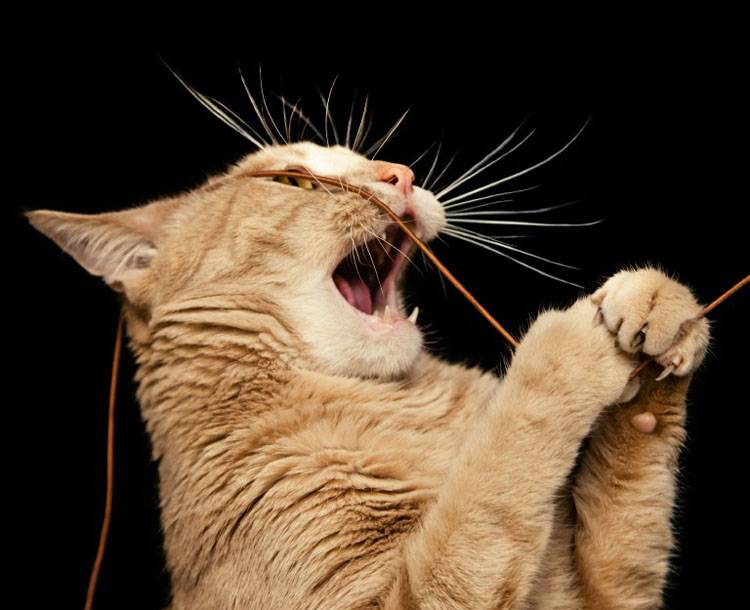Cats With Pica
By Penny Derbyshire-Baldyga, RVT
As with some humans, cats are known to eat strange things. The urge to eat non-food items is known as pica, and is common for many cats. For example, there is a behavior called “wool sucking,” which occurs in cats who are weaned too soon. The younger the kitten, the greater the urge to nurse and the more likely she will suck on wool. This means fuzzy items, such as sweaters, stuffed animals, towels and fleece, will fall victim to this behavior.
Causes of Pica
Some cats may find other strange items irresistible: paper, plastic grocery bags, houseplants, carpet and even electrical cords. Usually there is nothing to worry about. However, pica can be associated with several diseases, such as feline immunodeficiency or feline leukemia. In any case, a cat needs to be examined by a veterinarian since pica can be caused by several things.
Genetics
Wool sucking is seen more commonly in Siamese and Birman cats (not to be confused with Burmese cats). Wool sucking could be more of a nursing behavior, which is related to kneading.
Dietary Deficiencies
While it’s normal for cats to eat a bit of grass, eating a large amount of plant material could mean something is missing from your cat’s diet. Eating cat litter might mean the cat is anemic.
RELATED: 5 Foods You Should Never Feed Cats
Medical Issues
Besides feline leukemia and feline immunodeficiency (or FIV), pica can also be associated with diabetes or brain tumors.
Environmental Conditions
Cats can get bored and therefore may need more mental or physical stimulation. Cats may also be seeking attention, be hungry or be attracted to scents (grocery bags that contain meats for example). It may also be a learned behavior.
Compulsive Disorder
If all other possibilities, such as a medical issue, have been ruled out, pica may be a compulsive disorder.
Although it mainly shows up in younger cats, pica can also appear in older cats as well. While occasional chewing on items should not be a problem, pica could be dangerous. Chewing on power cords can be a major problem so is ingesting foreign materials, which can cause blockage in the stomach or intestine. Either way, it can be fatal to a cat.
READ ALSO: Inappropriate Urination in Cats





